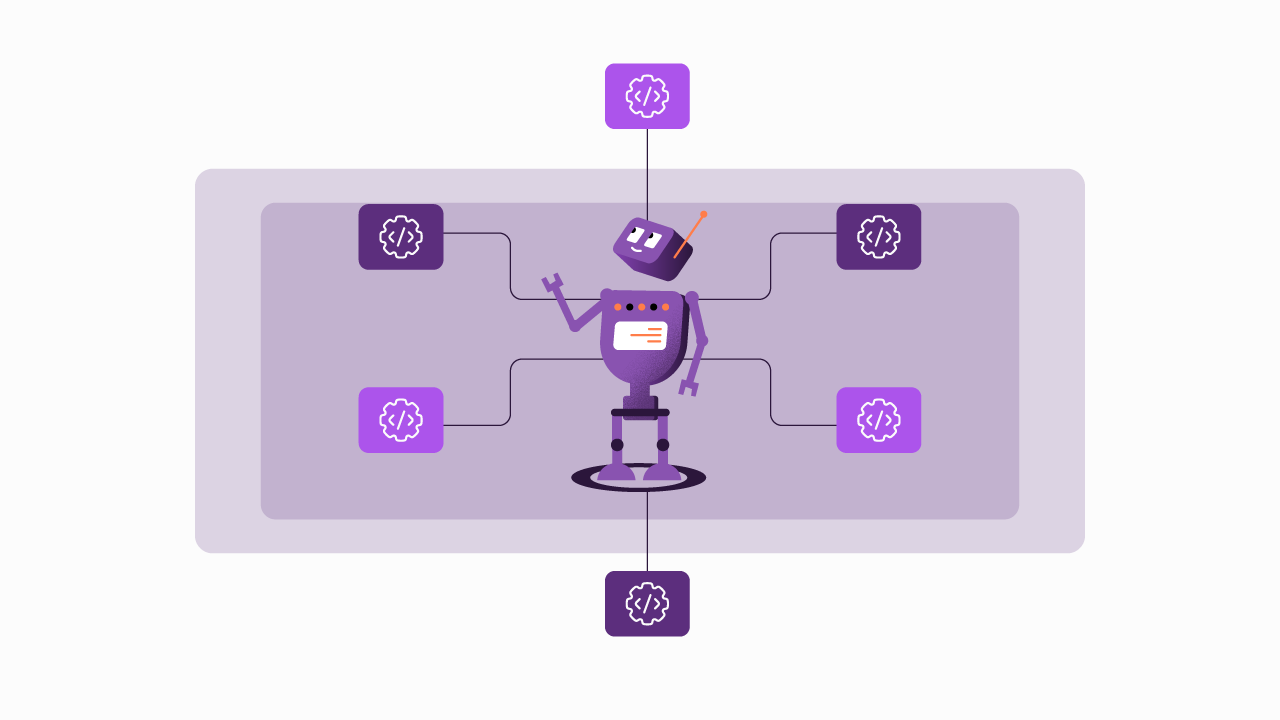6 Powerful API Trends To Look Out For in 2023
The universe of possibilities provided by APIs keeps expanding. For many business leaders, they are a permanent asset in their solution architecture landscape. For others, however, it’s still uncharted territory.
For this reason, we teamed up once more with Randy Heffner, one of the world's most prominent software experts, to discuss what is, in fact, a trend in this immense API scenario, generating insights that will help companies to anticipate and stay ahead of the technology curve. Let's explore six API trends that demand attention in 2023.
.webp)
In selecting the six API trends for 2023, Heffner employed criteria that focused on short-term best practices derived directly from the long-term trends he highlighted in 2022. The aim was to ensure that these trends remain entirely relevant in the current landscape.
We also considered the possibility of connecting your API strategy with other software trends, adding an extra layer of significance to the list. It's worth noting that our exploration of traditional API trends goes beyond just insights on API integrations. We dive into broader territories, stretching the boundaries of these trends themselves.
Each of the 6 trends for 2023 highlighted by Heffner should be followed within the context of your strategy. As he states, "You can build research and testing of it into your plans – but only after you’ve determined its relevance for your specific situation and not because others say it’s new and cool".
6 API trends for 2023
1. Open API Goes Beyond Regulations
While regulatory requirements have played a crucial role in driving organizations to adopt Open API standards. "Open Everything" discussions are now a reality, spanning industries such as Open Banking, Open Insurance, Open Finance, and Open Education. Regulatory compliance is just the beginning, as visionary leaders are already envisioning the limitless potential of this open universe and looking beyond regulations for transformative opportunities.
By going beyond regulatory mandates, businesses can begin to leverage the power of APIs as a Product, to build new ecosystems, unlock new revenue streams, and deliver enhanced value to customers and partners.
2. Multi-Gateway API Management Setups
Multi-cloud and hybrid scenarios have become increasingly prevalent, with complex environments becoming the norm. A survey conducted by Deloitte in 2022 revealed that as many as 80% of enterprises utilize multiple major cloud platforms. Notably, nearly half of the survey's "Leaders" employ three or four platforms. These statistics highlight the growing popularity of multi-cloud and hybrid setups, showcasing their practicality and explaining their increasing adoption.
"For API users, it doesn't matter how many different platforms are involved in servicing their API requests. Hiding these details is the goal," warns Randy.
3. Blending API Delivery Processes
Wherever APIs are - and they are widely spreading - they make it easy to integrate many distributed and disconnected parts into a whole. API delivery is undergoing a blending process, merging with tool chains, integration, and other interconnected infrastructure components.
"Going forward, the mandate is for each solution context or platform to have APIs as a first-class citizen, with toolchains and implementation guidance to foster API usage", explains Mr. Heffner.
4. API Adaptive End-to-End Governance is key
As microservices, multi-cloud environments, and automated software delivery tool chains continue to gain traction, industry leaders are expanding their achievements by adopting adaptive API governance. This approach goes beyond APIs themselves and encompasses a wider range of assets throughout the software architecture and life cycle.
According to Heffner, some key API management features that can be leveraged in this context include:
- Tagging and classification assets along multiple dimensions like business domain, sensitivity, and data usage.
- Life cycle workflows to ensure the right level of review is applied to each asset.
- Integration and automation for end-to-end governance, operating together with other delivery infrastructures.
5. APIs and Infrastructure Benefit from Platform Engineering
To achieve faster delivery speed and operational resilience, the most effective approach is through platform engineering. This methodology involves consolidating software infrastructure design and configuration responsibilities into dedicated platform teams, distinct from application development teams. By separating these roles, organizations can streamline processes, enabling faster development and deployment while ensuring the resilience and reliability of their operations.
"Development teams can focus more tightly on their applications, while platform teams handle intricate issues," explains Heffner.
6. APIs are a Fundamental Pillar in Enterprise Efficiency
Lastly, business efficiency, a widely discussed topic closely tied to APIs, can serve as a foundational pillar that supports both resilience during challenging periods and opportunities for growth during prosperous times.
"Rather than merely helping with a point solution, APIs, done right, facilitate changing the solution in the future," points out Randy.
For a comprehensive understanding of the subject, I recommend exploring the complete insights presented in the whitepaper. In addition to outlining the six API trends for 2023, Randy Heffner conducts a thorough review of the best practices discussed in his 2022 document. He concludes the whitepaper with a collection of specific planning considerations tailored to each of the highlighted near-term trends.
Click here and download it for free now.
Clique aqui e baixe gratuitamente agora mesmo.
Haz clic aquí y descárgalo gratis ahora mismo.
Begin your API journey with Sensedia
Hop on our kombi bus and let us guide you on an exciting journey to unleash the full power of APIs and modern integrations.
Embrace an architecture that is agile, scalable, and integrated
Accelerate the delivery of your digital initiatives through less complex and more efficient APIs, microservices, and Integrations that drive your business forward.





.svg)




.png)

